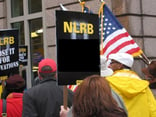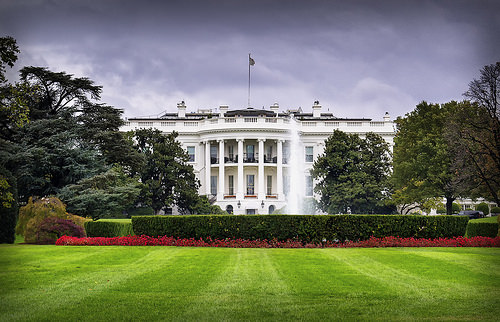President Trump and his agency heads have been clear about their intent to reduce regulatory “burdens” on individuals and organizations. Meanwhile, however, they have tended to talk tough on crime. However, a new report shows that civil and criminal enforcement against corporations fell dramatically during their first year in office, compared with enforcement during President Obama’s term. In July, the nonprofit advocacy group Public Citizen published “Corporate Impunity – ‘on Crime’ Trump Is Weak on Corporate Crime and Wrongdoing.”
Read MoreAudit, Compliance and Risk Blog
Federal Enforcement Falls in President Trump’s First Year
Posted by Jon Elliott on Tue, Aug 28, 2018
Tags: Business & Legal, Environmental risks, Environmental, EPA, corporate social responsibility
Facebook and its chief executive, Mark Zuckerberg, are being criticized far and wide for the company’s lax privacy practices after it was revealed that the political data firm Cambridge Analytica had used a seemingly innocuous personality test to collect data on 87 million Facebook users, which it combined with data from other sources to develop psychological profiles that were used in support of President Trump’s 2016 campaign. A number of lawsuits have been filed against the site over privacy issues and the Cambridge Analytica incident in particular.
Read MoreTags: Business & Legal, Internet, corporate social responsibility, directors & officers, social media
On May 21, President Trump signed legislation (Senate Joint Resolution (SJR) 57) disapproving compliance guidance issued by the Consumer Financial Protection Bureau (CFPB) in March 2013 as advice about compliance issues under the fair lending requirements of the Equal Credit Opportunity Act. This disapproval applies the Congressional Review Act (CRA), which requires agencies to provide Congress with information about newly-adopted rules, and then gives Congress 60 days to pass a resolution disapproving the rulemaking. (I wrote about this legislation and procedures here). In order to stretch its 60 day opening to over 60 months, Congress has for the first time expanded the meaning of “rule” to include guidance that Congress determines should have been acknowledged as a rule. Because CFPB treated its guidance as guidance, the agency did not submit rule-related information to Congress, which has now decided that failure means the 60 day time limit was never triggered and Congress was within its authority to disapprove this “rule.”
Read MoreTags: Business & Legal
Supreme Court Avoids Choosing Between Religion and Anti-Discrimination in Commerce
Posted by Jon Elliott on Tue, Jun 12, 2018
Instead of deciding that question, however, seven members of the Court decided that the Commission had demonstrated bias in considering Phillips’ prosecution for violating the Colorado Anti-Discrimination Act, violating Phillips’ Constitutional rights. Accordingly, they overturned state order penalizing him, and declined to reach the merits of the dispute.
The nine justices did produce a majority opinion, three concurring opinions, and a dissent – all of which talked around the tensions between the First Amendment and legal protection against discrimination, applying the facts in somewhat different ways to reach different conclusions about how disputes like this might be decided. Accordingly, the decision does provide some guidance about religious freedoms in commercial settings, which we can ponder while we await a future case that may decide the merits.
What Happened Between the Baker and His Would-Be Customers?
Jack Phillips runs a bakery, the Masterpiece Cakeshop. He considers himself an artist, who seeks to honor God and Jesus Christ through his work, including uniquely designed and executed wedding cakes. Charlie Craig and Dave Mullins sought to hire him to prepare a cake for their wedding reception (Colorado did not yet allow same-sex marriage, but they planned to marry in Massachusetts and return home to celebrate with family and friends). He refused to perform this special service for them because of his religious principles, but he did offer to make and sell other cakes or cookies that did not overtly implicate marriage.The couple complained to the Colorado Civil Rights Commission, claiming that Phillips’ refusal violated the Colorado Anti-Discrimination Act prohibition against discrimination (including on the basis of sexual orientation) in places of “public accommodation.” This prohibition applies to service businesses such as bakeries.
What Did the Colorado Authorities Do With This Dispute?
After investigation, the Commission referred the case to an administrative law judge (ALJ) for hearing. The ALJ rejected Phillips’ argument that he’d violated no law since Colorado didn’t recognize same sex marriages, finding that his refusal to serve was based on sexual orientation discrimination. The ALJ also rejected his First Amendment arguments that his artistry constitutes protected Free Speech, and that the Free Exercise clause protects him against being forced to perform a service that violates his religious principles. Instead, the ALJ cited precedent for the proposition that the Anti-Discrimination Act is a “valid and neutral law of general applicability”, administration of which does not violate either aspect of the First Amendment.Phillips appealed to the full Commission, which held a public hearing. At the hearing, one commissioner publicly disparaged Phillips’ arguments. First, that commissioner opined that religious beliefs cannot legitimately apply in commercial situations. More pointedly, that commissioner pointed out that religious arguments had been used to justify slavery and the Holocaust, and found such arguments to be “one of the most despicable pieces of rhetoric that people can use … to hurt others.” None of the other commissioners responded to these arguments, but the Commission ultimately found that Phillips and his Masterpiece Cakeshop had violated state law.
Phillips appealed, renewing his First Amendment arguments and arguing that hostility to his beliefs had tainted the Commission’s actions. He also pointed out that the Commission had recently found no discrimination in three cases against bakeries that refused to make cakes with lettering opposing same sex marriage, accepting those other bakers’ arguments that they refused because they found the requested message offensive. The Court of Appeals affirmed the Commission’s decision against Phillips, accepting the legal arguments that the Anti-Discrimination Law is neutral and withstands individual First Amendment claims, and disposing of the disparate enforcement claims in a footnote.
What Has the US Supreme Court Decided?
Justice Kennedy, who is frequently the swing vote between four conservative justices and four progressive justices, wrote the majority opinion. He emphasized tensions between First Amendment rights and growing anti-discrimination protections (which are, after all, grounded in Constitutional Equal Protection clauses), and recounted growing political and social trends that are rebalancing these rights. However, Justice Kennedy also wrote that the Court has consistently protected members of the public and their First Amendment religious rights against biased administrative agencies and their decisions, and chose to do so in this case by overturning the Colorado Human Rights Commission decision that Phillips had violated state law, and the intervening state court decision.Six justices signed onto Justice Kennedy’s opinion. Two (justices Ginsberg and Sotomayor) dissented, finding that Phillips’ refusal to make one of his generally-available cakes for the gay couple violated Colorado’s anti-discrimination law. Accordingly, I’m seeing news analyses that a 7-2 majority has upheld religious rights for commercial businesses – or at least for self-employed service providers.
However, these interpretations ignore the detailed arguments and counter-arguments within the three concurring opinions and the dissent. In those opinions, eight of the nine justices offered different perspectives, which could have led to different outcomes that directly addressed the underlying questions about the applicability of First Amendment rights to commercial transactions. These differences include the possible scope of a First Amendment right in these situations – would a Masterpiece Cakeshop cake imply agreement with same-sex marriage, or a willingness to comply with state law (even begrudgingly), or just a commercial decision to make and sell a cake? Should services that merely require specialized skills (e.g., baking), receive different/lower protections than those that required special skills (e.g., baking artistry)? Does sale of a good or service imply that the provider endorses the customer’s circumstances?
What’s Next?
This case is over, but other cases are working their way through state and federal courts. Eventually, a case that’s not tainted by administrative bias will reach the Supreme Court, and when it does the nine justices then on the bench will have to decide it. Among the nine justices now on the Court, my reading is that four would have found for the baker, four would have found for the state. Only Justice Kennedy, who has recently denied (politically-motivated?) rumors that he may be considering retirement, has kept the icing on his views.Self-Assessment Checklist
Does the organization ever decline to provide generally-available goods or services because of its owner(s)’ religious or ethical views?If so, how is that business policy communicated to customers and/or the general market?
Where Can I Go For More Information?
- Masterpiece Cakeshop v. Colorado Civil Rights Commission decision (on Supreme Court website)
Specialty Technical Publishers (STP) provides a variety of single-law and multi-law services, intended to facilitate clients’ understanding of and compliance with requirements. These include:
Read MoreTags: Business & Legal
Many of the items that make their way into your home are designed with only one purpose in mind. After you’ve opened up a bottle of champagne, the cage and cork become destined for the landfill. Once you’ve eaten all of the fruit out of the colourful plastic mesh bag, it can’t be recycled and it’s pushed into the trash bin. You can sit around getting blue about all the waste that abounds or you can do what I do and give those items a second chance at life.
Read MoreTags: Business & Legal, Environmental risks, Environmental, Hazcom, climate change, sustainability
Are Your Climate Risks “Material”, and If So, Do You Disclose Them?
Posted by Jon Elliott on Thu, May 17, 2018
Tags: Corporate Governance, Business & Legal, SEC, directors, directors & officers
Tags: Business & Legal, Employer Best Practices, Employee Rights
SEC Expands Public Company Cybersecurity Disclosure Expectations
Posted by Jon Elliott on Tue, Apr 10, 2018
The Securities and Exchange Commission (SEC) has just published Interpretive Guidance to “assist” public companies with evaluation and reporting of their cybersecurity risks. This Guidance expands similar SEC guidance issued in 2011, reflecting the growing importance of the issue and highly-publicized cybersecurity breaches during the intervening years. The following discussion summarizes the new Guidance, and provides context.
Read MoreTags: Corporate Governance, Business & Legal, SEC, Internet, directors, directors & officers
Administration Proposes Massive Cuts in EPA for Fiscal Year 2019
Posted by Jon Elliott on Tue, Mar 27, 2018
On February 12, the Trump Administration issued its budget proposal for federal Fiscal Year (FY) 2019 (October 1, 2018 through September 30, 2019), subtitled “An American Budget”. The proposal included a 34% cut in the Environmental Protection Agency (EPA) budget, from $8.2 billion in FY 2016 (stable in FY 2017 and FY 2018 under a Continuing Budget Resolutions rather than a fully-new federal budget), to $5.4 billion for FY 2019, with corresponding personnel cuts from 15,408 full-time-equivalent employees (FTE) to 12,250. (these are numbers for EPA in the government-wide budget from the Office of Management and Budget (OMB); the stand-alone budget document on EPA’s website cites $6.1 billion).
Read MoreTags: Business & Legal, Environmental risks, Environmental, EPA, climate change
 Most employers promulgate a wide range of employee-related policies and work rules, which some compile in employment manuals. All too frequently, these policies and work rules contain ambiguities that employees try to parse to understand what rules really apply, and why. What if employees interpret – or might reasonably interpret – an ambiguity in a way that appears to restrict employees’ rights to organize themselves? Do these provisions violate the National Labor Relations Act (NLRA)?
Most employers promulgate a wide range of employee-related policies and work rules, which some compile in employment manuals. All too frequently, these policies and work rules contain ambiguities that employees try to parse to understand what rules really apply, and why. What if employees interpret – or might reasonably interpret – an ambiguity in a way that appears to restrict employees’ rights to organize themselves? Do these provisions violate the National Labor Relations Act (NLRA)?
Tags: Business & Legal, Employer Best Practices, Employee Rights, NLRB, directors, directors & officers









